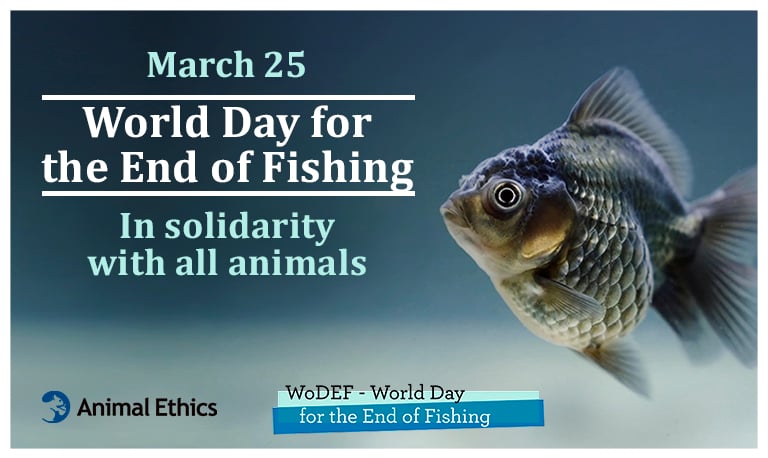As we navigate through the complexities of ethics and dietary choices in our increasingly interconnected world, the question of whether eating fish constitutes animal cruelty has gained critical attention. This dilemma is more than a mere culinary debate; it touches upon our moral obligations toward sentient beings inhabiting aquatic ecosystems. With advances in science illuminating the cognitive capacities of fish, a reassessment of our traditional views on animal rights is imperative.
Historically, fish have been neglected in conversations about animal welfare. Predominantly viewed as lesser creatures, their plight has gone largely unexamined. However, burgeoning research reveals a startling truth: fish exhibit a range of complex behaviors and possess neurological systems that allow for the experience of pain and distress, much akin to terrestrial animals. Studies indicate that fish have nociceptors—sensory receptors that sense harmful stimuli—and react to these stimuli in ways that suggest emotional responses. Such revelations beg the question: if fish can feel pain, should they not be afforded similar considerations as other animals?
The conventional justification for fishing and consuming aquatic life often hinges on the argument that fish are plentiful and their ecosystems resilient. Nevertheless, this rationale is increasingly challenged by mounting evidence of overfishing and its dire effects on marine biodiversity. The intricate balance of oceanic ecosystems is threatened when species are removed indiscriminately. Overfishing not only endangers specific fish populations but also disrupts the entire aquatic food web, unleashing a cascade of negative consequences.
As we delve deeper into the ethical implications of consuming fish, we encounter the concept of sentience. Ethologists—scientists who study animal behavior—have increasingly recognized that many fish species demonstrate sophisticated learning, social interactions, and even problem-solving abilities. For instance, the cleaner wrasse, a small reef fish, engage in intricate behaviors displaying a form of social cooperation, often cleaning parasites from larger fish in a mutualistic relationship. This complexity of social interaction challenges the simplistic view that fish are devoid of emotional complexity.
Furthermore, the ethical dimensions of fishing practices merit scrutiny. The methods employed in commercial fishing, such as trawling and gillnetting, frequently subject fish to prolonged suffering. Trawling, for instance, involves dragging vast nets across the ocean floor, indiscriminately capturing marine life and often leaving non-target species to perish. Studies have shown that fish trapped in nets display stress responses, including heightened levels of cortisol—an indicator of distress. These practices raise salient questions about our complicity in animal cruelty when we choose to consume fish.
Yet, the arguments surrounding the ethics of eating fish are not exclusively one-sided. Some proponents argue that fishing can be sustainable when practiced responsibly. Advocates for sustainable fishing emphasize the importance of adhering to regulations and considering ecological impacts. They posit that not all forms of fishing are inherently cruel; rather, it is the methods employed that determine the ethical implications. Practices like hook-and-line fishing can be less harmful, allowing for more selective capture. But, this standpoint necessitates rigorous adherence to sustainable practices, something that remains inconsistent across the industry.
The notion of sustainability intertwines with a broader ethical outlook, which extends beyond individual species to encompass entire ecosystems. The resilience of fish populations and marine health is paramount; when we consume fish, we ought to reflect on the ecological ramifications and our role in perpetuating a cycle of exploitation. It necessitates a transformational shift in perspective, wherein we recognize the intrinsic value of marine life, rather than merely viewing them as resources at our disposal.
In recent years, a growing cohort of individuals have transitioned to plant-based diets or pescatarian lifestyles, motivated by the desire to minimize harm to sentient beings. This has sparked an increasing interest in alternative protein sources that can substitute fish in our diets without compromising nutritional needs. Plant-based proteins, lab-grown seafood, and innovative culinary advancements provide exciting avenues for conscientious eaters who wish to sever ties with practices that inflict suffering on fish.
Moreover, educational initiatives play a pivotal role in transforming societal perceptions of aquatic animals. Initiatives that promote awareness regarding fish cognition and welfare can engender a more compassionate ethos. Schools, restaurants, and community programs that focus on reducing seafood consumption and encouraging vegetarian alternatives can cultivate a culture of empathy toward all beings—both terrestrial and aquatic.
As stewards of the planet, grappling with the ethics of our dietary choices is not only about individual preferences but also about the legacy we leave for future generations. The choice of what we eat resonates beyond personal consumption; it reverberates through ecosystems, influencing the health of our oceans and the myriad life forms they sustain.
Ultimately, the question of whether eating fish is tantamount to animal cruelty demands careful consideration. It challenges us to confront uncomfortable truths and engage with the realities of our agricultural systems and marine practices. By embracing a paradigm shift—an evolution of thought that recognizes the consciousness of fish and prioritizes humane treatment—we can strive toward a more just coexistence with all living beings.
In summary, engaging with the ethical implications of consuming fish reveals a profound moral reckoning. As awareness grows and scientific insights expand, we are beckoned to reconsider long-held notions about our dietary practices. It compels us to question not only our relationship with fish but also the ethical landscape of our food systems as a whole.








